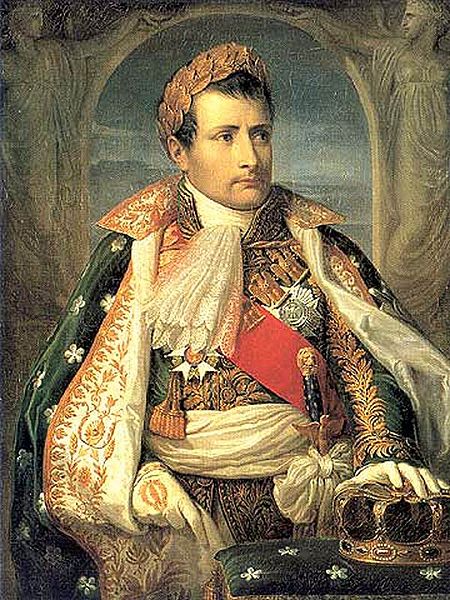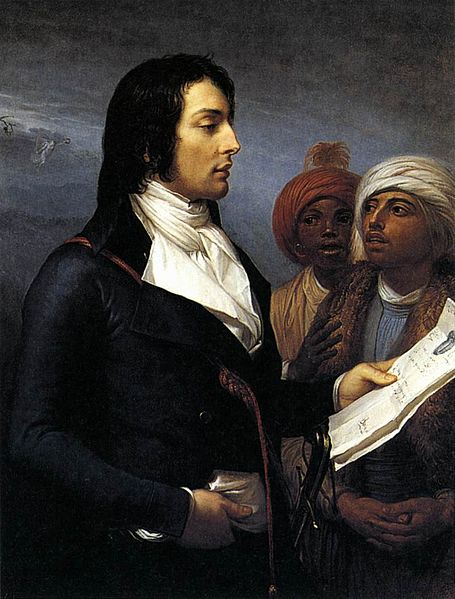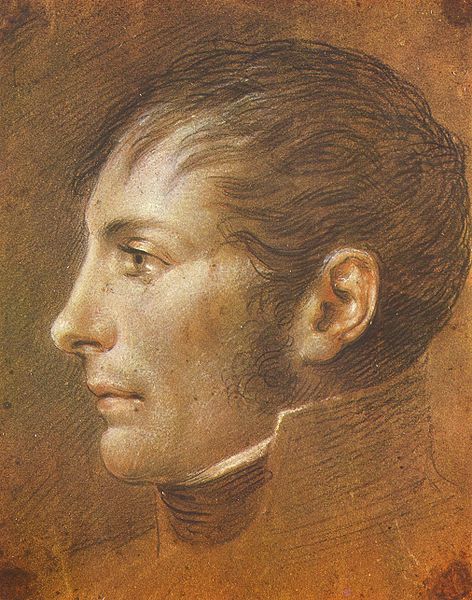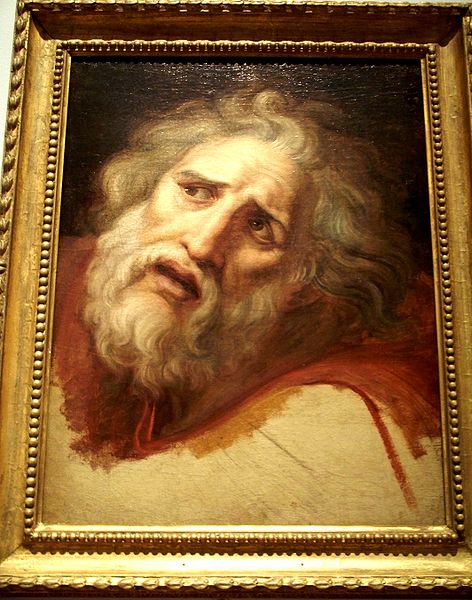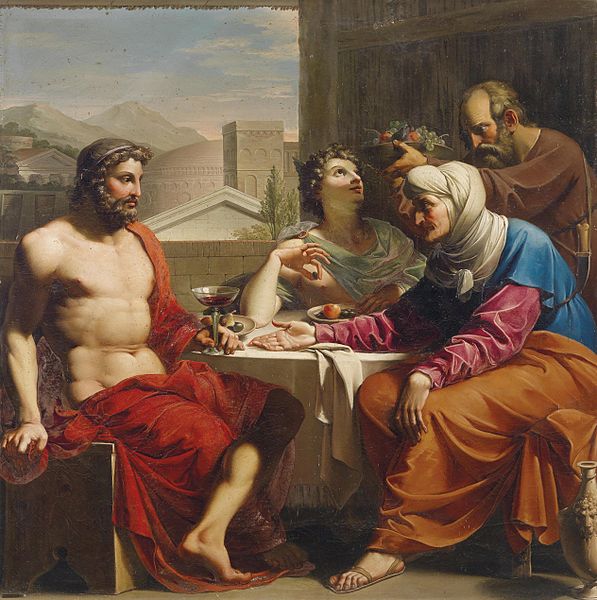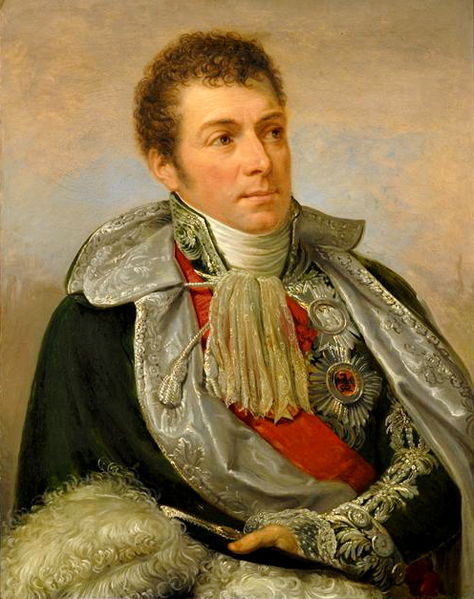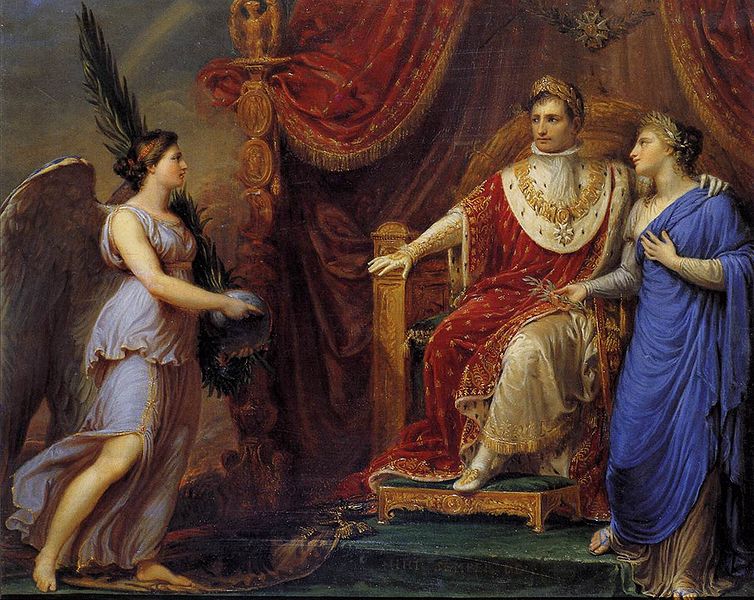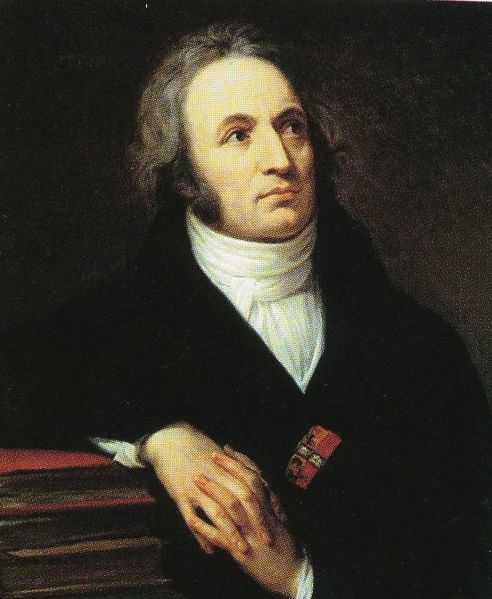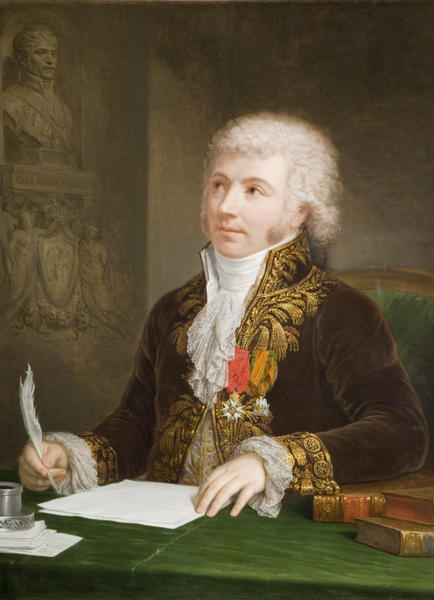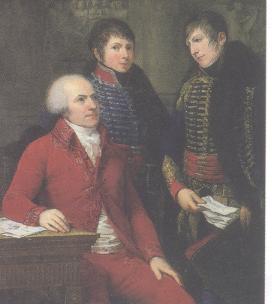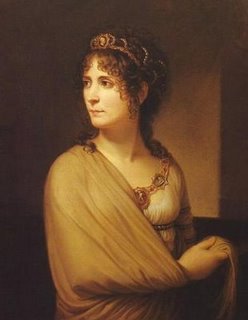<Back to Index>
- Mathematician and Computer Scientist John George Kemeny, 1926
- Painter Andrea Appiani, 1754
- Shinsengumi Fukuchou Hijikata Toshizō Yoshitoyo, 1835
PAGE SPONSOR
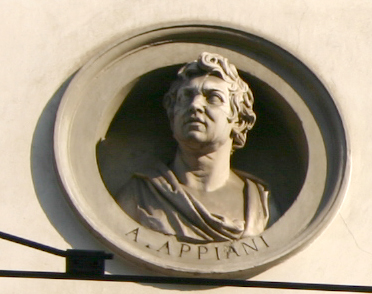
Andrea Appiani (May 31, 1754 – November 8, 1817) was an Italian neoclassical painter.
He was born in Milan. He had been intended to follow his father's career in medicine but instead entered the private academy of the painter Carlo Maria Giudici (1723 – 1804). He received instruction in drawing, copying mainly from sculpture and prints. He then joined the class of the fresco painter Antonio de' Giorgi, which was held at the Ambrosiana picture gallery in Milan. He also frequented the studio of Martin Knoller, where he deepened his knowledge of painting in oils; and he studied anatomy at the Ospedale Maggiore in Milan with the sculptor Gaetano Monti.
His interest in aesthetic issues was stimulated by the classical poet Giuseppe Parini,
whom he drew in two fine pencil portraits. In 1776 he entered the
Accademia di Belle Arti di Brera to follow the painting courses of Giuliano Traballesi,
from whom he received a mastery of the fresco technique. His best
pieces are in the church of San Maria presso San Celso and the royal
palace at Milan and almost rival those of his master. He was made pensioned artist to the Kingdom of Italy by Napoleon, but lost his allowance after the events of 1814 and fell into poverty. During his stint as court painter he rendered portraits of Napoleon and the chief personages of his regime. Among the most graceful of his oil paintings are his Venus and Love, and Rinaldo in the garden of Armida. He is known as "the elder", to distinguish him from his great - nephew Andrea Appiani, an historical painter at Rome. Other painters of the same name were Niccolò Appiani and Francesco Appiani. He died at Milan in 1817.
